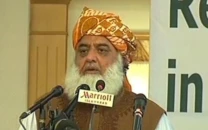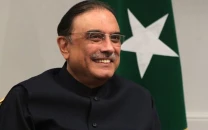260 degrees under suspicion
The degrees of around 260 legislators recently sent for verification are under a cloud of suspicion.

Verification process
The Supreme Court had ordered the Election Commission of Pakistan (ECP) to authenticate the degrees, which in turn requested the Higher Education Commission (HEC) to look into the documents. Dr Javaid Laghari, chairman HEC, says his body wrote a letter to all concerned universities just two days ago to check the degrees on their end and report back within two weeks.
Detailing the procedure, Leghari said that in a normal verification process, such as that for students applying for scholarships abroad, candidates are required to submit their original degree certificates. “However, in the present scenario, the documents that were passed on by the ECP are photocopies which can be tampered with very easily,” he said.
Leghari said that the HEC has so far received 1,095 such photocopies, against the total of 1,170 federal and provincial assembly seats. “So we are already short on documents of about a 100 members,” he says, adding that out of these 1,095 photocopies, 161 are illegible or irrelevant and thus also immediately suspect. “We have sent back these illegible photocopies back to the commission asking them to file a fresh copy of those candidates.
“Now, we are left with the documents of only 934 candidates, who have degrees from all over Pakistan. Out of these 934 candidates, 313 have degrees from the University of Punjab, 108 from the University of Sindh, 106 from the University of Karachi and 105 from the University of Peshawar,” he said.
The rest of the degrees are from various 36 HEC recognised universities and 10 madressahs across the country. In the case of candidates with foreign degrees, Leghari says the HEC has sent emails to the relevant universities.
“Now if a member has a degree from a non HEC-recognised university or madrassa, we will mention it in our report and forward it to the commission, who will take further action at their end.”
Mohammad Afzal Khan, the official ECP spokesperson, admits the graduate degrees of parliamentarians which have been passed on to the HEC and also handed over to the National Assembly’s Standing Committee for Education for scrutiny, are photocopies and not original certificates.
This was because the returning officers during the 2008 general elections accepted photocopies attached with the nomination papers. “Around 70 cases are still pending before the courts regarding the nomination papers, most of which challenge the nomination on the grounds of the graduate condition,” he says.
The onus is on the HEC to properly scrutinise the degrees, claims Afzal. When asked why the ECP is not a part of the supervisory body overseeing the validation process at the HEC’s end, he remarked: “Whoever is concerned, should know”.
“Once the HEC gets back to us with the list of degrees which were recognised or have objections, we will present it to the court. It would be up to the court to decide whether the candidate should resign from their seat,” Afzal said, adding that 141 degrees have already been identified with obvious flaws.
Meanwhile, the HEC claims that the verification process is very thorough and professional. “We not only verify the authenticity of the last degree held by the candidate, but also go back to his/her intermediate and matriculation certificates. In the case of degrees from abroad, we check whether the institution from which it was obtained is internationally recognised and also cross check it with the entries on their passports,” said Leghari.
“We have tried our best to make the process of verification as transparent as possible. But of course record tampering can be done at various ends. One can get a fake degree on the exact paper used to officially award a degree. Mark sheets and other relevant details can be fudged at the university record end,” he said.
The turning point, officials say, could be the Vice Chancellors of the universities, who have been appointed by the HEC to directly look into the cases which fall under their domain. They warn that the VCs could theoretically succumb to pressure from various quarters, and, if that happens, it would be very difficult to catch the tampered records as all due process would be shown to have been followed.
Dr Attaur Rehman, the former chairman of the Higher Education Commission, says the phone lines must be buzzing at all ends, including the HEC and the Vice Chancellor offices. “Even during my tenure, I faced lot of pressure for giving admission to certain ministers’ sons and daughters for scholarships in colleges abroad,” he said, adding that he was, however, strong enough to resist them all.
Rehman suggests that instead of leaving everything at the end of each university VC, the HEC should form a select team comprising former or current reputable VCs and mandate it to make snap checks at various universities across the country. He said that although most VCs were honest and professional, “everything should not be left to one single vice chancellor of a university.”
Rehman said that, legally, the HEC on its own has powers to declare a degree fake or not. “The body is empowered to do that according to the relevant clauses of the law. But whether they want to exercise that power or not is an all together different ball game.”
He admits that the HEC doesn’t need it to be directed by the court to verify the degrees of parliamentarians. “But doing so would be suicidal,” Rehman said, adding that if the HEC had done it on its own accord, the body would have been destroyed. The way forward is to have the degrees of every member of the assembly verified with judicial oversight immediately after or before an election. “Else, such problems will reoccur,” says Rehman.
Published in The Express Tribune, July 3rd, 2010.




1724319076-0/Untitled-design-(5)1724319076-0-208x130.webp)














COMMENTS
Comments are moderated and generally will be posted if they are on-topic and not abusive.
For more information, please see our Comments FAQ